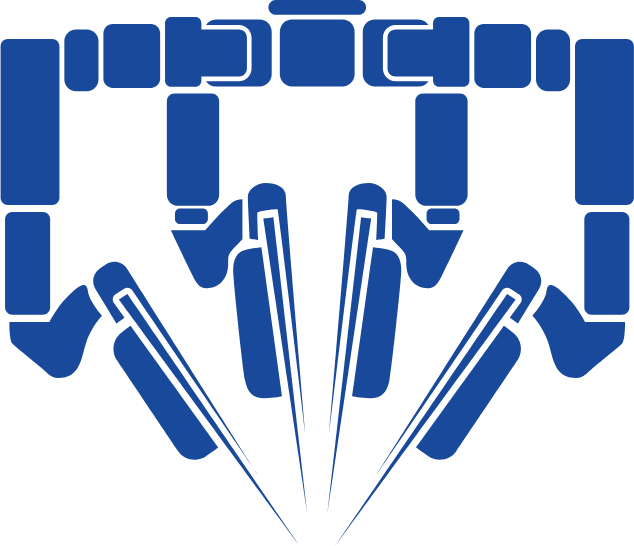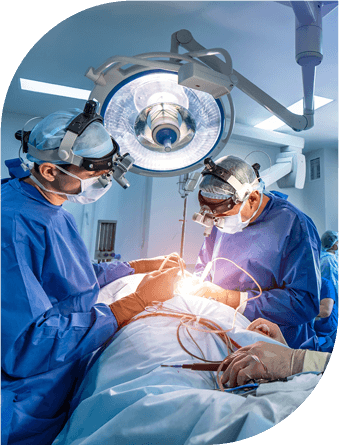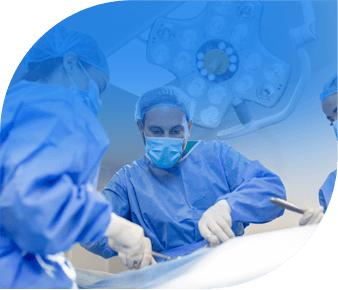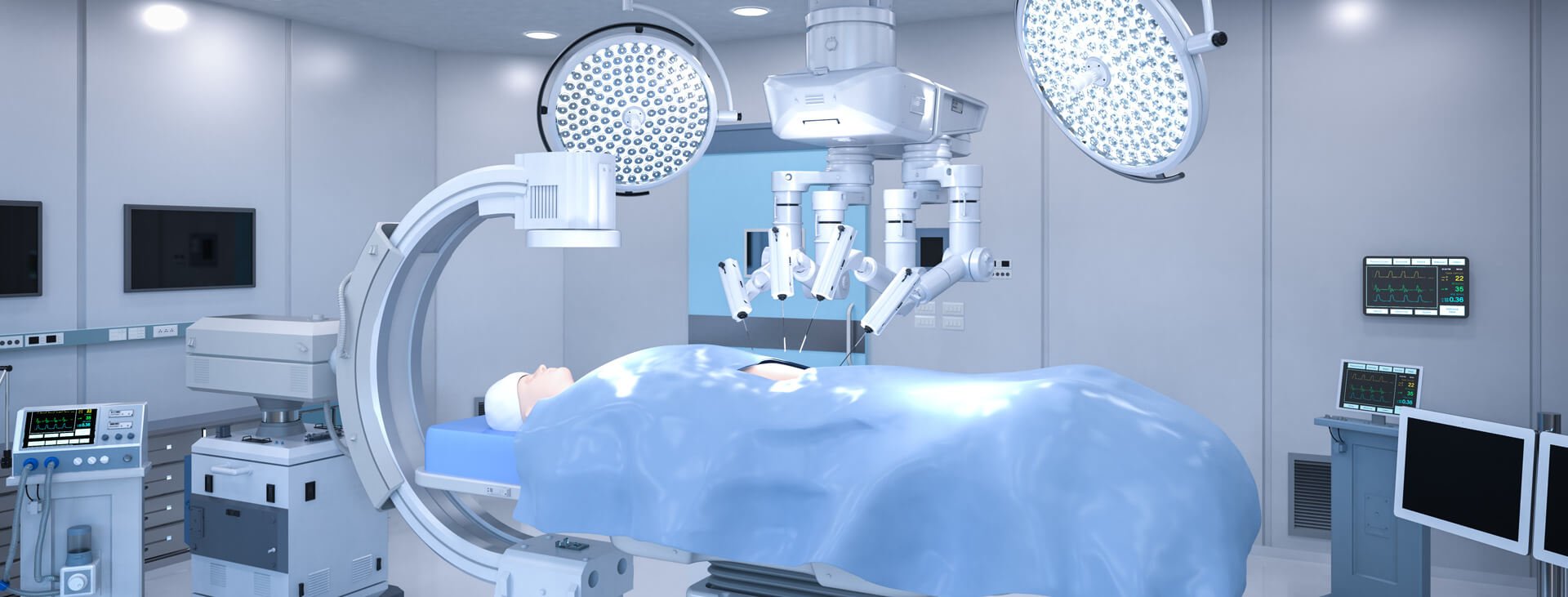
Gall Bladder Removal Surgery: Cholecystectomy



Accepting all New Patients (Insured, Uninsured, Self Pay). Instant Appointments




The gallbladder is a small, pear-shaped organ located under the liver on the right side of the abdomen. Its primary function is to store and concentrate bile, a digestive fluid produced by the liver. When food is consumed, especially fatty foods, the gallbladder contracts and releases bile into the small intestine to aid in the digestion and absorption of fats. Bile helps to emulsify fats, breaking them down into smaller particles that can be more easily digested by enzymes.
As a patient facing the possibility of cholecystectomy, it is important to have a comprehensive understanding of the procedure and what it entails. Cholecystectomy is the surgical removal of the gall bladder, a small organ located beneath the liver. This procedure is commonly performed to treat gallbladder disease, which can cause pain and discomfort. In this guide, we will explore the various aspects of cholecystectomy, including symptoms and diagnosis, types of procedures, risks and complications, as well as recovery and aftercare.
Gallbladder disease is a common condition that affects millions of people worldwide. It refers to a variety of disorders that affect the gallbladder, a small organ located beneath the liver. The gallbladder plays a crucial role in the digestion process by storing and releasing bile, a substance that helps break down fats. When the gallbladder becomes diseased or inflamed, it can lead to a range of symptoms and complications.
To fully understand gallbladder disease, it’s important to have a basic understanding of the gallbladder and its function. The gallbladder is a pear-shaped organ that sits just below the liver. Its primary function is to store and concentrate bile, a yellowish-green fluid produced by the liver. When we consume fatty foods, the gallbladder contracts and releases bile into the small intestine, where it helps break down fats and aids in digestion.
Gall Bladder Removal GallBladder Surgery Cholecystectomy may be recommended if you have been diagnosed with gallbladder disease and are experiencing symptoms that significantly affect your quality of life. The decision to undergo cholecystectomy will depend on various factors, including the severity and frequency of your symptoms, the presence of complications such as infection or gallstones, and your overall health. Your doctor will assess these factors and discuss the benefits and risks of the procedure with you to help you make an informed decision.

Accepting all New Patients (Insured, Uninsured, Self Pay). Instant Appointments
Gallbladder disease refers to conditions that affect the gallbladder, such as gallstones or inflammation. The gallbladder plays a role in the digestion of fats by storing bile produced by the liver. When the gallbladder is affected by disease, it can cause a range of symptoms, including abdominal pain, nausea, vomiting, and bloating. In some cases, the symptoms may be mild and intermittent, while in others, they can be severe and persistent. It is important to consult with a healthcare professional for an accurate diagnosis if you suspect gallbladder disease.
The symptoms of gallbladder disease can vary from person to person, but some common signs to watch out for include pain in the upper right abdomen, pain between the shoulder blades, nausea, and vomiting. These symptoms may worsen after eating fatty or greasy foods. If you experience any of these symptoms, it is important to consult with a healthcare professional for a proper diagnosis. Your doctor may perform a physical examination, review your medical history, and order diagnostic tests such as an ultrasound, CT scan, or blood tests to confirm the presence of gallbladder disease.
Gallbladder disease can be caused by several factors, including:
Gallstones: Gallstones are the most common cause of gallbladder disease. They are solid particles that form from bile cholesterol and bilirubin in the gallbladder. Gallstones can block the bile ducts, leading to inflammation, infection, and pain.
Cholecystitis: This is inflammation of the gallbladder, often caused by gallstones blocking the bile ducts. Cholecystitis can also occur without gallstones, due to infections or other conditions.
Biliary dyskinesia: This condition occurs when the gallbladder doesn’t empty properly due to a malfunction of the muscles or nerves controlling its contractions. It can lead to symptoms similar to those of gallstones.
Gallbladder cancer: Though relatively rare, cancer of the gallbladder can cause gallbladder disease. Risk factors for gallbladder cancer include gallstones, chronic inflammation of the gallbladder, and certain genetic conditions.

Accepting all New Patients (Insured, Uninsured, Self Pay). Instant Appointments
Cholecystectomy may be recommended if you have been diagnosed with gallbladder disease and are experiencing symptoms that significantly affect your quality of life. The decision to undergo cholecystectomy will depend on various factors, including the severity and frequency of your symptoms, the presence of complications such as infection or gallstones, and your overall health. Your doctor will assess these factors and discuss the benefits and risks of the procedure with you to help you make an informed decision.
If you suspect you may have gallbladder disease, blood clots, it is essential to seek a proper diagnosis from a healthcare professional. The diagnostic process typically involves a combination of medical history, physical examination, and various tests. Your doctor may perform an ultrasound, which uses sound waves to create images of the gallbladder and detect any abnormalities. Blood tests may also be conducted to check for signs of inflammation or infection. In some cases, additional tests such as a CT scan or MRI may be recommended to further evaluate the gallbladder and surrounding structures.
When it comes to undergoing cholecystectomy, choosing a skilled and experienced surgeon is of utmost importance. Dr. Astha Bhatt is a highly regarded board certified general surgeon specializing in cholecystectomy in Fort Lauderdale, FL, Pompano Beach, FL, Deerfield Beach, FL, Wilton Manor, FL, Oakland Park, FL, Davie, FL, Plantation, FL, Coral Springs, FL, Margate, FL, Coconut Creek, FL and surrounding area of Broward County, Florida. With a wealth of experience and expertise, Dr. Bhatt provides personalized and compassionate care to her patients. If you are in need of cholecystectomy surgery, consider consulting with Dr. Astha Bhatt for exceptional surgical care.
Dr. Astha Bhatt is a highly experienced general surgeon specializing in gallbladder removal. She is based in Fort Lauderdale, FL, Pompano Beach, FL, Deerfield Beach, FL, Wilton Manor, FL, Oakland Park, FL, Davie, FL, Plantation, FL, Coral Springs, FL, Margate, FL, Coconut Creek, FL and surrounding area of Broward County, Florida and has a reputation for providing exceptional care to her patients. Dr. Bhatt has extensive experience in performing laparoscopic cholecystectomy and other advanced surgical techniques. She is known for her skilled surgical approach, compassionate patient care, and commitment to delivering the best possible outcomes.
Prepare for Gall bladder Removal
Like any surgical procedure, cholecystectomy carries certain risks and potential complications. These may include infection, bleeding, injury to surrounding organs, bile duct injury, and anesthesia-related complications. While these risks are relatively rare, it is important to be aware of them and discuss any concerns with your surgeon. Your surgeon will take precautions to minimize the risks and ensure your safety throughout the procedure.
Before undergoing the removal of the gallbladder, there are several steps you can take to prepare yourself physically and mentally. Your surgeon will provide specific instructions tailored to your needs, but some general tips include:
Recovery and Aftercare: Remove the Gallbladder
After cholecystectomy, you can expect a period of recovery and adjustment as your body adapts to the absence of the gall bladder. Most patients are able to return home the same day or within a few days after laparoscopic cholecystectomy. Open cholecystectomy may require a longer hospital stay. Your doctor will provide postoperative instructions regarding pain management, wound care, physical activity, and diet. It is important to follow these instructions carefully to promote healing and prevent complications. Most patients are able to resume their normal activities within a few weeks after surgery.
Recovery following gallbladder removal is usually relatively quick, with most patients able to return to their normal activities within a week or two. However, it’s essential to follow your surgeon’s post-operative instructions to ensure a smooth recovery. Some general aftercare tips include:

Accepting all New Patients (Insured, Uninsured, Self Pay). Instant Appointments

There are two main types of cholecystectomy procedures: laparoscopic cholecystectomy and open cholecystectomy. Laparoscopic cholecystectomy is the most common approach and involves making several small incisions in the abdomen to insert a laparoscope and surgical instruments. This minimally invasive technique allows for quicker recovery and less scarring compared to open cholecystectomy, which involves a single larger incision. Your surgeon will determine the most appropriate procedure based on your specific condition and individual factors.
Cholecystectomy, the surgical removal of the gallbladder, is a common treatment for gallbladder disease, particularly when gallstones are causing symptoms like pain, inflammation (cholecystitis), or complications like blockage of the bile ducts. However, it’s not the only treatment option, and the appropriate treatment depends on the specific type and severity of the gallbladder condition.

Accepting all New Patients (Insured, Uninsured, Self Pay). Instant Appointments
Is cholecystectomy the only treatment for gallbladder disease?
Cholecystectomy is the most common and definitive treatment for gallbladder disease. However, in certain cases, medications or non-surgical procedures may be recommended to manage symptoms or dissolve gallstones. Most patients do not experience any long-term effects after gall bladder removal. The body can adapt to the absence of the gall bladder, and digestion generally remains unaffected. However, some individuals may experience changes in bowel habits or increased frequency of bowel movements.
Can I live a normal life without a gall bladder?
Yes, you can live a normal life without a gall bladder. The gall bladder is not essential for survival, and the liver can still produce bile to aid in digestion.
Can gallstones return after surgery?
Once the gallbladder is removed, gallstones cannot return. However, it is still possible for new stones to form in the bile ducts if there are underlying conditions or risk factors present.
When it comes to undergoing cholecystectomy, choosing a skilled and experienced surgeon is of utmost importance. Dr. Astha Bhatt is a highly regarded general surgeon specializing in Gall Bladder Removal GallBladder Surgery Cholecystectomy in Fort Lauderdale, FL, Pompano Beach, FL, Deerfield Beach, FL, Wilton Manor, FL, Oakland Park, FL, Davie, FL, Plantation, FL, Coral Springs, FL, Margate, FL, Coconut Creek, FL and surrounding area of Broward County, Florida. By choosing a surgeon like Dr. Bhatt, you can have confidence that you are receiving the highest level of care and the most advanced surgical techniques available.
Our mission is to provide personalized excellent care, guidance and service to all patients using the most advanced innovative technologies that are evidence-based. If you are in need of cholecystectomy surgery or have any concerns about gallbladder disease, schedule a consultation with Dr. Astha Bhatt in Fort Lauderdale, FL, Pompano Beach, FL, Deerfield Beach, FL, Wilton Manor, FL, Oakland Park, FL, Davie, FL, Plantation, FL, Coral Springs, FL, Margate, FL, Coconut Creek, FL and surrounding area of Broward County, Florida. Dr. Bhatt is dedicated to providing exceptional surgical care and personalized treatment plans for her patients. Contact her office today to learn more.
Dr. Astha Bhatt, MD
Dr Bhatt is a Board Certified General and Colorectal Surgeon, Proctologist based in Fort Lauderdale, FL, Pompano Beach, FL, Deerfield Beach, FL, Wilton Manor, FL, Oakland Park, FL, Davie, FL, Plantation, FL, Coral Springs, FL, Margate, FL, Coconut Creek, FL and surrounding area of Broward County, Florida. Dr. Bhatt provides one of the best comprehensive diagnostic treatments and surgery covering all aspects of Colon Rectal and General Surgery.
© 2024 Colorectal MD LLC. All rights reserved.